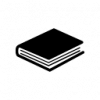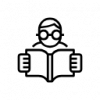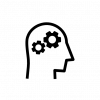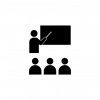Teaching context and philosophy
I use student-centered personalised approaches that inspire lifelong learning in my students. This includes use of flipped classroom and active learning. The success of this approach is evidenced by my students regularly commenting on my teaching “getting them to think critically” and consistently high satisfaction scores in myExperience results.
Central to the design of my teaching are the themes of collaboration, teamwork, critical thinking, and problem-solving. With the flipped classroom, I can remove myself from being at the front of the room to instead becoming a listener, and giving students personalised time as they are working through cases in tutorials and practicals. In those spaces I can challenge students and give them individualised feedback. This approach encourages my students to develop their critical thinking skills and gives them the ability to try making clinical decisions in a safe (virtual) formative environment, where they can make mistakes and can learn from each other. We can also reflect on and learn from these experiences together as a group or class.
Through this I try to develop an honest relationship with the students. I believe that a caring approach where I can be transparent and authentic works best. I look for opportunities where I can show students that I don’t know all the answers to the cases we are working on, and encourage them to view me as a vehicle that teaches them “how to” learn rather than the “what”. In other words, I try to teach them how and where to look for information and to motivate and inspire them to be lifelong learners rather than rote learners. This is acutely important for the field I teach, Ocular Therapeutics. I strive to make my students understand that knowledge is not a static concept and that the clinical protocols we are discussing for the management of various eye diseases will most certainly change after they graduate. My aim is to teach the key concepts but also to teach the “why”. I want my students to complete my courses with a lifelong ability to question the scientific literature and any information provided to them in the future including at continuing education seminars, contained in company brochures, or found on the internet.




